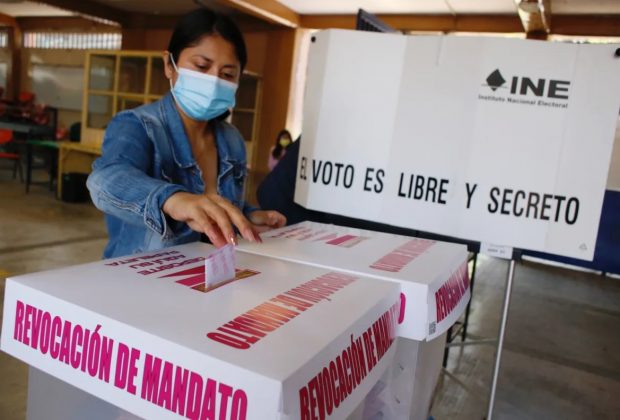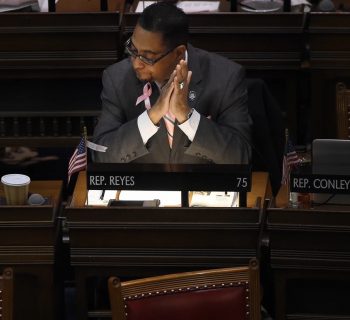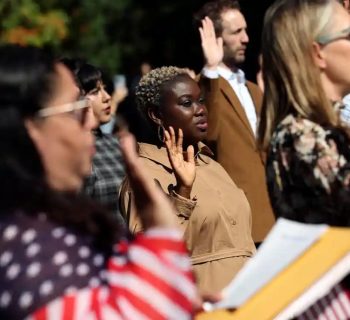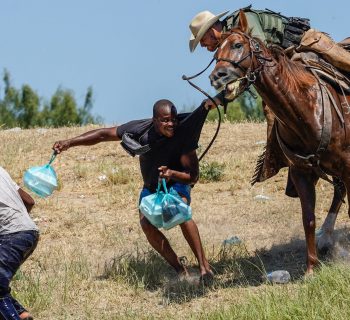The Electoral Reform proposal, sent by President Andrés Manuel López Obrador to Congress, opens the door for more Mexican migrants to vote from outside the country.
By Gardenia Mendoza | La Opinion | MAY 2, 2022 | Photo by Reforma Agency
MEXICO.- An Electoral Reform is being cooked in this country. And to the debate on the disappearance of the National Electoral Institute (INE) and the elimination of multi-member legislators, two requests from Mexicans abroad are added:
The right of migrants to vote for other representatives, not only for the President of the Republic, some governors and deputies as well as the opportunity for them to be candidates even if they do not live in national territory.
"The political rights of migrants are recognized by the Court, but we need that recognition to be reflected in the laws, that it is not required to go up to the Court to fight what is their right," warned Senator José Narro Céspedes, one of the congressmen who currently echo the lawsuit.
In the last elections, the Federal Electoral Tribunal ruled in favor of a group of Mexicans abroad who complained that they were not allowed to be voted to represent migrants in the Chamber of Deputies.
Thus, their participation was included, but as Affirmative Action within the "vulnerable" population groups, such as indigenous or disabled.
The idea now - explains Narro - is to go further and create laws that allow a real system of political integration for the nearly 40 million first, second, third and fourth generation migrants: they are almost a third of Mexico's population!
Both because of the number and the dependence on remittances, many legislators and analysts agree that in addition to guaranteeing this population representation, more agile mechanisms must be generated for suffrage from outside Mexico because it has been very low.
In 2018, a little less than 100,000 Mexicans voted. It was considered a step forward because in 2012 less than 60,000 voted and the increase was almost doubled, but the percentage is almost zero if one takes into account that there could be millions and when compared to other countries.
Last year, more than 220,000 Peruvians abroad voted in the first round of the presidential election, what happens? Are Peruvians more democratic than Mexicans, are they more interested in electing the President of their country?
Roberto Valdovinos, former counselor of the Institute for Mexicans Abroad (IME) says that the low participation of Mexican migrants is because the country's government has put "a series of brakes" that have not allowed Mexicans to participate properly.
"In 2018, to vote, you had to register since March. The fact that he had not registered in March, specifically to vote abroad, could not vote in the July election; who in Mexico would do that to vote?" he questioned.
And even more: "Let's imagine the case of those who live abroad working in the fields, how are they going to take the time, how are they going to find out even that they have to register for five months to be able to comply with the right they have as a Mexican?"
In other electoral processes, such as the most recent one for the revocation of mandate, migrants had to register two months in advance in a complex and confusing registry:
First, the Mexican abroad received an email that was sometimes in Spanish, sometimes it was in English. Then, voting was allowed only between April 1 and 10, if and only if they had registered between February 29 or February 28.
"All this must end," agrees Narro, who asked Mario Alberto Torres, representative of Morena in the Migration Commission of the Chamber of Deputies, to include the political rights of migrants in the discussion of the open parliament that is scheduled for the third week of May in the context of Electoral Reform.
The migrant agenda
Those who support the inclusion of Mexicans abroad in the political life of the country, agree that the binational agenda requires, in most cases, technical and specific knowledge of those who have lived outside and inside Mexico.
Deputy Torres, who has lived in Los Angeles for 18 years, details that in recent times remittances have been promoted as an opportunity to make cooperatives.
In Mexico there are three types of cooperatives provided for by law and migrant organizations from the United States are working on them: production, consumer and credit and savings cooperatives.
For the latter, there is a proposal to create a "Migrant Bank" that would give cheap credit in the communities of Mexicans abroad.
Senator Narro supports him: "We need a different financial instrument that serves so that people can save and so that people can make a collective social investment."
In Mexico there are three types of cooperatives provided for by law and migrant organizations from the United States are working on them: production, consumer and credit and savings cooperatives.
For the latter, there is a proposal to create a "Migrant Bank" that would give cheap credit in the communities of Mexicans abroad.
Senator Narro supports him: "We need a different financial instrument that serves so that people can save and so that people can make a collective social investment."
For now, the Mexican legislature is looking for a skills training program that adapts to the requirements of the door infrastructure plan in the United States.
The synergy that Mexico can make with progressive states of the American Union is another reason that drives a greater participation of Mexicans abroad in the public life of their country.
On the environmental agenda, Narro recalls, "California, being one of the states that contributes the most to global warming, has resources through coal bonds, which can be exchanged for sustainable productive projects in the communities of Mexico."
That, among thousands of ideas for the two inevitably integrated nations.







